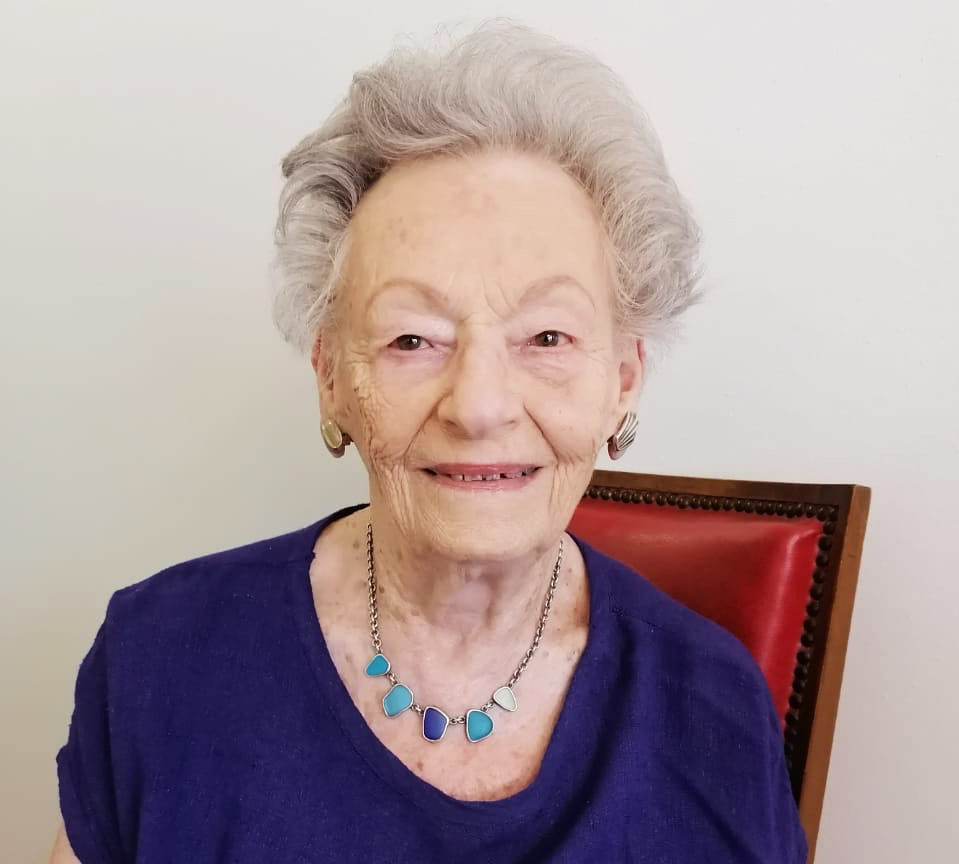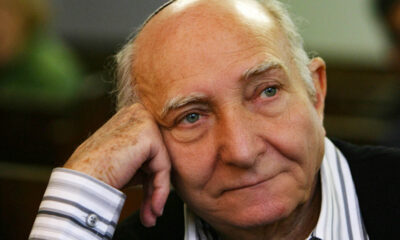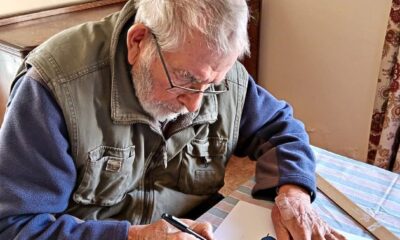
Tributes

Architect Rose Norwich’s life’s work a priceless edifice
Rose Norwich, who held a Masters in architecture, passed away on 26 August 2024 at the age of 103, having lived her life in service to humanity and the Jewish community of South Africa in particular.
Rose will always be remembered for having compiled an exhibition of South African Jewry for the Museum of the Jewish Diaspora in Israel in the 1980s. This mammoth task culminated in the opening of the exhibition on 9 March 1983 at Beth Hatefutsoth in Tel Aviv.
The exhibition, open for three months, was seen by more than 60 000 people. Several years later, it was brought to South Africa and, with Standard Bank sponsorship, was moved around the country.
Around this time, Rose embarked on her Masters in architecture with a seminal work, Synagogues on the Witwatersrand before 1930: their origin, form and function. In this, she compiled a history of the shul buildings, tracing, copying, and drawing the plans of each.
Finding some of them took a fair amount of dedicated detective work, but Rose set about this with a passion and her high level of organisation. One of the interesting finds from this study was that the earliest South African buildings faced east, which was the aspect of European buildings.
She found out that Chief Rabbi Landau insisted that the synagogue in Wolmarans Street should face north as that was the direction of Jerusalem from South Africa. Since then, every new synagogue faced in a new direction. Ultimately, the project was a huge work, with 43 buildings documented, all done by hand.
Rose was born in Johannesburg in 1921 to Abraham and Lily Sive. Her father was a Lithuanian immigrant in 1895 when he started work in a pharmacy. Her mother’s family came from England in the late 19th century.
Rose was one of five children who grew up in a home in Houghton. She wrote in her biography, In Celebration of a Century, that the house had a lovely garden with a willow tree, from which her father made whistles, as well as a tennis court, and an orchard with plums, figs, and walnuts. Her mother used to make Pesach wine every year in a small wooden barrel from the grapes growing on the tennis court wire.
Rose attended Johannesburg Girls’ High School, known as Barnato Park, with her sister, Annette. Apart from music and elocution lessons, the children had private Hebrew lessons every week. The family attended Wolmarans Street Synagogue. She later became a founding member of the Great Park Synagogue in Melrose, giving a generous donation towards it and funding two stained glass windows.
Rose began her Bachelor of Architecture degree at the University of the Witwatersrand in 1939, the beginning of World War II.
She graduated during the war, and though there were few jobs for architects – even fewer for women architects – she was taken into the office of Cook and Cowen. There she worked without pay for a long time before they began paying her a pitiful salary.
It was while visiting her aunt and uncle in Kalk Bay, Cape Town, that she met Dr Oscar Norwich. After returning to Johannesburg after the holiday, she and Oscar started dating and soon married.
In spite of the age difference – Oscar was 35 and Rose 24 at the time – the couple had almost 50 happy years of marriage, which was launched by an “extended honeymoon” and adventure in America.
They worked and travelled in the United States from July 1945 to the following year, when they returned to Johannesburg. Rose and Oscar moved into their first home in Houghton, where they were to live for many years, and brought up their family of four: Michael Saul, Brahm, Elda May, and Lorraine Sue.
Rose’s interests during this time were many and varied. She became an active member of the Transvaal Council, later to become the South African Jewish Board of Deputies. In 1966, she got involved with ORT, an international educational organisation, and helped to grow and strengthen it considerably. With her help, ORT developed into a highly respected outreach organisation in teacher training, robotics, and maths instruction. It also provided bursaries for Jewish students.
In 1968, Rose was asked to join the executive committee of the Union of Jewish Women (UJW). One of her first assignments was to arrange a Jewish photographic exhibition in the Johannesburg Library. It was the first of many visual displays of Jewish interest that she made in South Africa and abroad.
In 1967, the couple sought medical treatment for Oscar in London, where he was operated on. Various complications meant that the trip was extended to six months. Fortunately, he recovered and life in Johannesburg resumed.
In 1976, Rose was elected president of the UJW. She worked hard at ensuring that the organisation had sufficient finances and its different divisions were active. During her term, she visited all the UJW branches with the exception of Potchefstroom and Klerksdorp, a record that other presidents hadn’t achieved.
She was outspoken in her opposition to apartheid, saying at the UJW’s 1979 conference that “history has shown us that it isn’t possible for one section of the population forever to dominate another”.
Oscar died on 16 October 1994 following a short illness, at the age of 84.
Rose told people she had to get herself together, as she put it, and continue with her life. It wasn’t easy, and she missed Oscar for the rest of her life. In memory of him, she and the children started the “Oscar Norwich Travelling Fellowship” in 1995 to encourage and reward the study of new skills.
Rose became the joint convenor of a documentary project to record the history of Jewish communities in country areas of South Africa, co-heading a team with Adrienne Kollenberg and Phyllis Jowell. It grew into the publication of six volumes by The South African Friends of Beth Hatefutsoth.
Titled Jewish life in the South African Country Communities, the books cover more than 1 500 centres across the country. The collection provides a unique record of the estimated 10 000 to 20 000 Jewish people who lived in the country districts of South Africa at various times from as far back as the 1820 Settlers to the present day.
Rose is survived by her four children, eight grandchildren, and four great-grandchildren.
She used to describe herself modestly as having been “lucky in life”, with good parents, an excellent education, a happy marriage, and a family who were all good human beings. She was always grateful to her family and friends for the support they gave her. “You can’t do it all yourself,” she would say.










